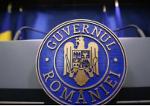The high level of public spending, the halt in structural reforms and the possibility of early elections being held are all risks for Romania, which, after entering the EU "has added fuel to the fiscal fire," reveals a report by the financial rating agency Standard & Poor's.
"By adopting a floating exchange rate system, Romania has ensured confident fiscal stability. There is, however, the risk of an overappreciation of the situation. Since joining the EU, Romania has added fuel to the fiscal fire. Significant salary and pension increases will begin in 2007 and 2008. As a result, public sector debt as a percentage of the GDP, although moderate, will start to increase again, after reaching a low in 2006. Structural reforms were put on hold, as a result of political turmoil," reads a report by S&P that includes Romania, Bulgaria and Croatia. Analysts also mention the possibility of early elections being held, which would lead to an increase in spending.
In the report published yesterday, S&P takes into account a number of macroeconomic indicators.
As far as the current account deficit is concerned, although its share in the GDP is lower in Romania than in Bulgaria, analysts believe Romania is not in as good a position as Bulgaria to address the issue via exports.
Of the countries analysed, Croatia has the lowest current account deficit, although its growth potential is also lower (4-4.5%), compared with around 6% for Romania and Bulgaria.
"Considering the inflation and the current account deficit, Bulgaria's economy seems the most overheated in the region. At a closer look, however, Romania seems the most vulnerable to potential global risks," indicates the S&P analysis.
Analysts also believe that Romania, out of all the three countries in the survey, will register the lowest coverage of the current account deficit through investment




